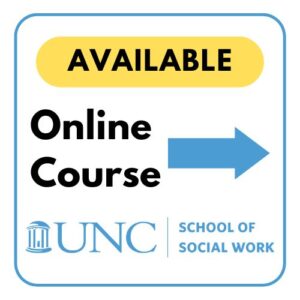Format: Self-paced / asynchronous program
Engage with this recorded program on your schedule.
 CE: 2 CEs total, read for more information on CEs
CE: 2 CEs total, read for more information on CEs
Fee: $35, read for more information on fees and scholarships
Description:
This workshop focuses on how to work effectively to engage white people to understand their own experiences with race in ways that foster self-awareness, helps them process emotions and dissonance, and addresses the challenges of racialized inequalities. White people are less likely to see themselves as “racialized” and lack a model for racial identity that is non-hierarchical and non-pathologizing. Drawing from theories of identity development, Rorri Geller-Mohamed will provide tools for all therapists to help white people gain deeper insight into their own experience with race and skills and strategies to understand and respond effectively to discomfort around the subject of race—potentially including white grievances about racial justice movements as well as painful emotions that arise when confronting the roots of whiteness and ways they are participating in harm. Ms. Geller-Mohamed will provide practical skills and strategies to build white people’s capacity to be actively antiracist and gain deeper insight into their sphere of influence and the impact it can have. Building on knowledge from racial equity and anti-racism trainings, and drawing from relational theory, family systems, self-awareness, and a community organizing approach, this workshop is geared for anyone who works with white clients as well as for white participants themselves.
Learning Objectives:
At the conclusion of this workshop, participants will be able to:
- Identify and practice with at least 1 strategy using a racial identity development model to help white people increase their awareness and recognize racialized aspects of their experience.
- Name and practice with at least 2 strategies to help white people unpack and process shame, guilt, defensiveness, anger, and other emotions that can keep them stuck.
- Describe and practice with at least 3 strategies to build white people’s capacity to do anti-racism work through communication skills, shame resilience, challenging perfectionism, emotional awareness, community organizing techniques, and/or strengthening one’s anti-racism support system.
 Trainer: Rorri Geller-Mohamed, LCSW is the founder of U Power Change, a social justice organization focused on creating a safe, loving, and inclusive world. She is an anti-racism coach and has created programs and resources to help white people speak up and show up for racial equity and justice. She also hosts the podcast Racially Responsible. Rorri received the NASW Palm Beach County Social Worker of the Year award in 2021. She has been a social worker for over 15 years in a variety of settings, has specialized in working with multi-identity (multifaith, multicultural, and multiracial) families, and received her master’s degree in social work from Columbia University.
Trainer: Rorri Geller-Mohamed, LCSW is the founder of U Power Change, a social justice organization focused on creating a safe, loving, and inclusive world. She is an anti-racism coach and has created programs and resources to help white people speak up and show up for racial equity and justice. She also hosts the podcast Racially Responsible. Rorri received the NASW Palm Beach County Social Worker of the Year award in 2021. She has been a social worker for over 15 years in a variety of settings, has specialized in working with multi-identity (multifaith, multicultural, and multiracial) families, and received her master’s degree in social work from Columbia University.
References:
- Diebold, J. (2021). “We’re going to show up:” Examining the work of a white antiracist organization. Journal of Community Practice, 29(1), 11-22. https://doi.org/10.1080/10705422.2021.1881936
- Helms, J. E. (1995). An update of Helms’s White and people of color racial identity models. In J.G. Ponterotto, J.M. Casas, L.A.Suzuki, C.M. Alexander, eds. Handbook of multicultural counseling. Thousand Oaks, CA: Sage.
- Helms, J. E., (Ed.). (1990). Black and White racial identity: Theory, research and practice. Westport, CT: Greenwood Press.
- Hughey, M. W. (2010). The (dis)similarities of white racial identities: The conceptual framework of ‘hegemonic whiteness’. Ethnic and Racial Studies, 33(8), 1289-1309. https://doi.org/10.1080/01419870903125069
- Hughey, M. W. (2011;2012;). Color capital, white debt, and the paradox of strong white racial identities. Du Bois Review, 9(1), 169-200. https://doi.org/10.1017/S1742058X11000506
- Malott, K. M., Schaefle, S., Paone, T. R., Cates, J., & Haizlip, B. (2019). Challenges and coping mechanisms of whites committed to antiracism. Journal of Counseling and Development, 97(1), 86-97. https://doi.org/10.1002/jcad.12238
- Schooley, R. C., Lee, D. L., & Spanierman, L. B. (2019). Measuring whiteness: A systematic review of instruments and call to action. The Counseling Psychologist, 47(4), 530-565. https://doi.org/10.1177/0011000019883261